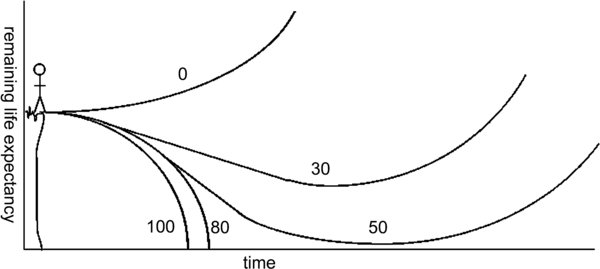If you're alive in 30 years, chances are good you may also be alive in 1000 years
Sounds unlikely? It's not - it's actually quite likely.
The only way to get people to live for a thousand years or more is to develop advanced technologies that can manipulate our bodies down to the cellular and molecular level. So the question is whether humanity will develop the necessary technologies over the next 30 years, or not. Personally, I think it's very close to 100% certain that we'll manage to do this.
That is, we don't have to perfect the technology in 30 years. What we must do is to develop technology that can make old people 10, 20 or 30 years younger, biologically speaking, so an 80-year-old, for example, can get the body of a 60-year-old. In that case, he has bought himself 20 more years of life, and in those 20 years the technology will have progressed even further, so that when he is 100 years and his body again is like an 80-year-old's, he can rejuvenate more than 20 years. In all likelihood we will take treatments more often than once every 20 years, and if so, the remaining life expectancy can be illustrated like this:

The figure is not entirely accurate, partly because people aged 100 years and 0 years clearly don't have the same remaining life expectancy today, and also because the curves would be more jagged (since it might go some time between each treatment), but it still illustrates the point well: the numbers above the curves represent how old the person is today (today is all the way to the left in the figure), and if the curve hits the horizontal line at the bottom (the time axis), the person is dead. According to the figure, then, a person who's 80 years old today will have difficulty living forever, while a typical 50-year-old might just make it.
Hi! This post has a Flesch-Kincaid grade level of 11.4 and reading ease of 62%. This puts the writing level on par with Michael Crichton and Mitt Romney.